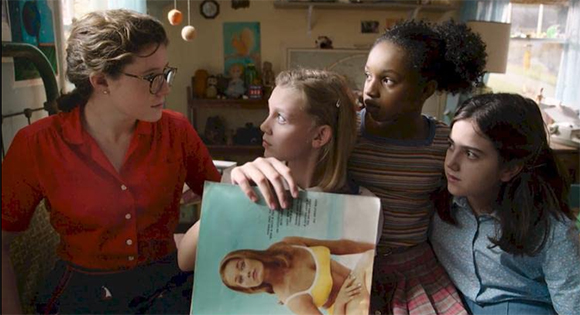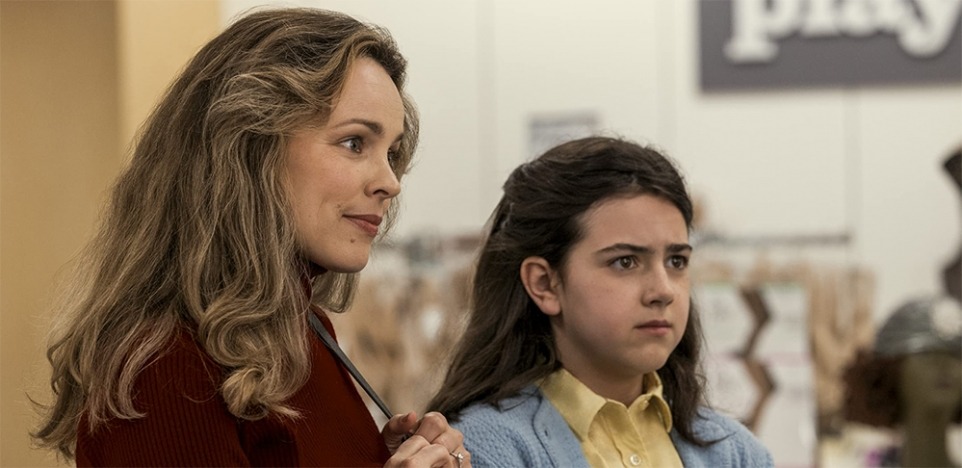Are You There, God? It’s Me, Margaret is an enchanting screen adaptation of Judy Blume’s best-selling classic 1970 young adult novel. The film has been praised by Blume as being true to her book and intentions. A coming-of-age story, it has spoken not only to young women but also to other generations who have been charmed by its depiction of universal experiences in different stages of life.
Margaret (Abby Ryder Fortson) is a serious eleven-year-old in sixth grade. As the story opens, she’s just learned that her parents, Barbara (Rachel McAdams) and Herb (Benny Safdie), are moving her away from her beloved New York City apartment and her grandmother with whom she is very close. They are going, of all places, to New Jersey. In one of the little chats peppered through the film, she asks God to not let New Jersey be too horrible.
It turns out to be okay, especially when she is immediately befriended by a girl in her class who lives down the street. Nancy (Elle Graham) invites Margaret to be part of her secret club with two other girls, Janie (Amari Alexis Price) and Gretchen (Katherine Mallen Kupferer). Nancy prides herself on knowing a lot about what is happening to their bodies as they go into puberty. She insists they all wear bras, promise to tell each other when they get their periods, and keep a list of their boy crushes. This all seems okay to Margaret, except the changes she wants aren’t coming fast enough.

Barbara (Rachel McAdams), an artist, stands by her daughter as she wrestles with her confusions and anxieties. There are a handful of very funny scenes as the girls do exercises to expand their breast size, practice kissing on a bedpost, and scan the pages of Playboy. Meanwhile, Barbara tries to adapt to suburbia by volunteering for PTA committees.
Filling out a getting-to-know you questionnaire at school, Margaret answers the question, “What do you hate?” with “religious holidays.” Her teacher (Echo Kellum) finds this interesting and suggests that as a school project, Margaret learn about some religions. She hasn’t gotten any religious education at home. Her father is Jewish and her mother’s parents, evangelical Christians, rejected Barbara when she married a Jew. So they have decided that Margaret should decide for herself what religion to be when she grows up.
Curious and needing information for her project now, Margaret decides to visit some religious congregations. She goes to temple with her grandmother, a Black church with Janie, a white Protestant church with Nancy; she even tries going to confession at a Catholic church. But she doesn’t feel anything anywhere.
Judy Blume’s novel was written in 1970 when the designation “spiritual but not religious” was not in vogue. But that is what Margaret is becoming. Her heart is in her quest; her conversations with God signify a real desire to connect; and she’s open to learning from others. Blume’s portrait of the young seeker was about 50 years ahead of the times. Today, close to 40% of people under 30 say they are not affiliated with any one tradition and most call themselves spiritual but not religious. Looking at Margaret’s experiences, we can understand why this percentage keeps growing.
Writer and director Kelly Fremon Craig and producer James L. Brooks have created an illuminating drama that carries us to an inner place of transformation. Margaret’s quest enables her to examine her relationships, face her fears, and give thanks, all while pondering the mysteries of sex and religion.
